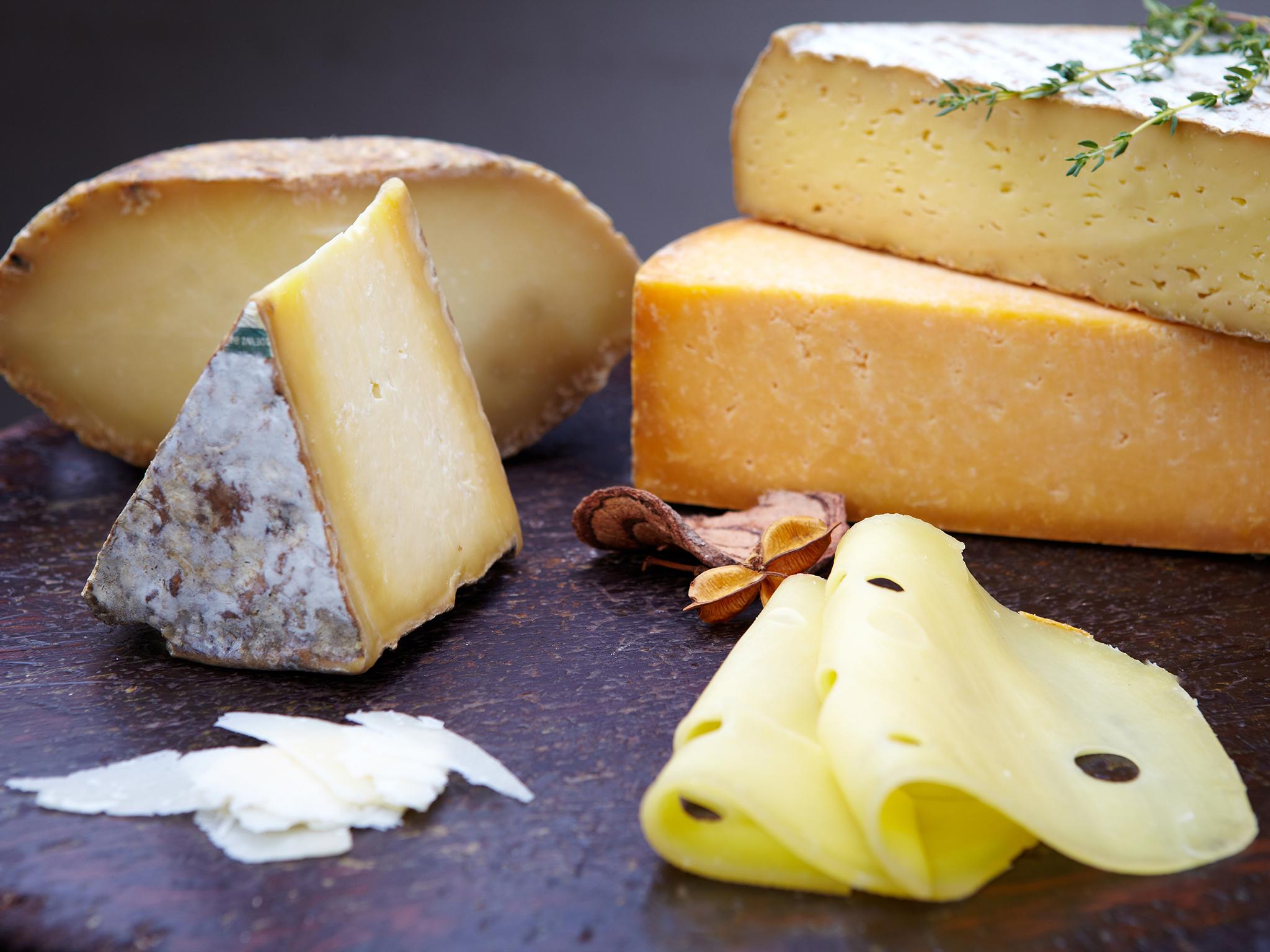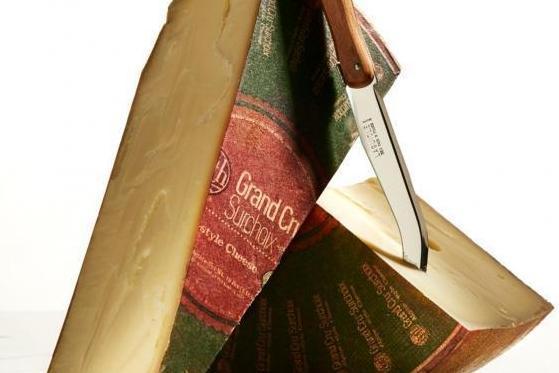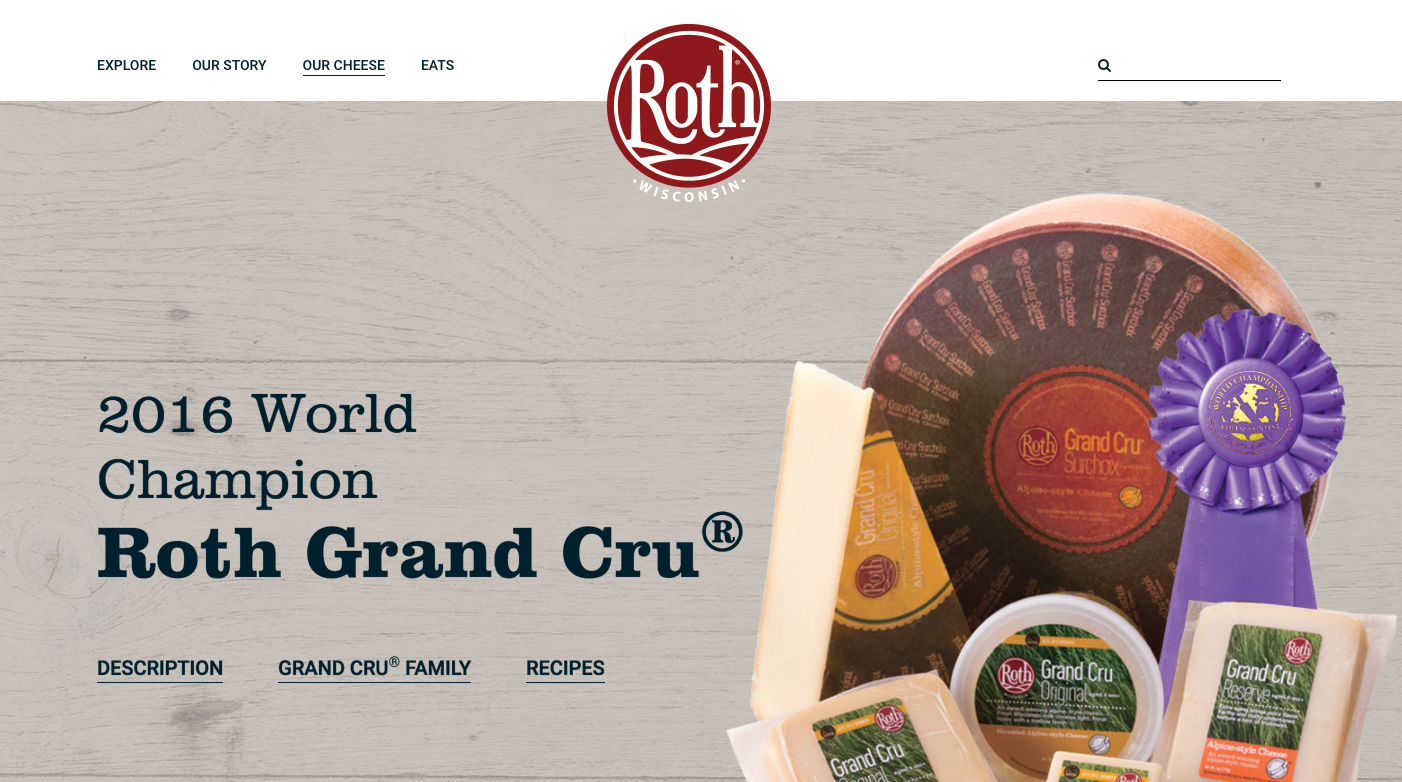The making of a cheese from Wisconsin that has been named the best in the world
American cheese is so much more than those sticky neon-yellow slices in cheap burgers

Your support helps us to tell the story
From reproductive rights to climate change to Big Tech, The Independent is on the ground when the story is developing. Whether it's investigating the financials of Elon Musk's pro-Trump PAC or producing our latest documentary, 'The A Word', which shines a light on the American women fighting for reproductive rights, we know how important it is to parse out the facts from the messaging.
At such a critical moment in US history, we need reporters on the ground. Your donation allows us to keep sending journalists to speak to both sides of the story.
The Independent is trusted by Americans across the entire political spectrum. And unlike many other quality news outlets, we choose not to lock Americans out of our reporting and analysis with paywalls. We believe quality journalism should be available to everyone, paid for by those who can afford it.
Your support makes all the difference.Consider the best cheese in the world. It's safe to assume you're thinking of something creamy and tough to pronounce from France. A slab hailing from Wisconsin would probably be a lot further down the list. But that is exactly where the Roth Grand Cru Surchoix, recently named one of the world’s best cheeses, is from.
At the 2016 World Cheese Championships, the Alpine-style cheese was named Best in Show. This marked the first time a cheese from the US had won the prize since 1988.
The judges scored it 98.8 out of 100, and described the Gruyere-like offering as “perfect”. Other highly-ranked cheese included the Sennerie Spluegen from Switzerland, and Whitestone Cheese Co from New Zealand.

This might be a shock to those who instantly picture neon-yellow slices for burgers when they think of American cheese, but less so to the people if Wisconsin. After all, the Midwestern state creates more than three billion pounds of cheese each year across 600 varieties.
Roth has been perfecting its Grand Cru Surchoix for more than 25 years, but tweaked it in 2013. Still, all that goes into the award-winning cheese is pasteurised cultured milk and salt, enzymes.
Asked how she feels about American cheese being widely viewed as terrible, Roth spokeswoman Abby Despins diplomatically skirts the question and replies:
“We would invite everyone to come and taste US cheeses showcased at the American Cheese Society Annual conference. During Cheese Day, all the cheeses enter into the judging and competition are displayed for everyone.”
For anyone gritting their teeth when they buy a £2.50 slab of cheddar at the supermarket, paying between approximately $18 to $25 (£14 to £20) per pound for a roll of Grand Cru might seem a bit steep. But the Roth team promise eating the cheese is a “sensory experience”.
With a dark, golden rind, and an ivory colour inside, the cheese is very sweet, with undertones of caramels and notes of umami. In the mouth, it is firth with some small salt crystals.

And its makers keep the process local. Milk from farms in a 50-mile radius to the Roth HQ is sent to makers in a specially made copper vat. Cultures and a coagulant are then added to turn the milk into curds. These are then stirred and heated to remove moisture, before the chunks are moulded and left to set.
After the correct level of acid develops in the product, the cheese is transferred into brine water. This naturally preserves the Grand Cru and creates a more complex flavour.
The magic really happens during the affinage process – or ripening, to you and me – in a cellar. Here, a master affineur oversees the cheese being transferred to wood boards, flipped, and “smeared” with bacteria to add depth of flavour.
“The backbone structure of our alpine-style cheese is very similar to any hard cheeses produced worldwide,” explains Despins.
“However, the most critical ingredient in Grand Cru Surchoix is the selection of the preparatory blend of starter cultures. It took us a year to define the best blend of starter culture with the proper inoculation rate needed.”
“Watching cheese ageing is like watching grass growing,” jokes Despins.
“You have to be patient and pay attention to details,” adding that the master affineur is the cheese therapist of the cellar.
When you get this involved in cheese production, it is perhaps unsurprising that the job titles become a little odd. As well as the "cheese therapist" who treats the product, it is graded by a “sensory team” before it is shipped out.
And yet, who can argue when they are making some of the best cheese in the world?
Join our commenting forum
Join thought-provoking conversations, follow other Independent readers and see their replies
Comments